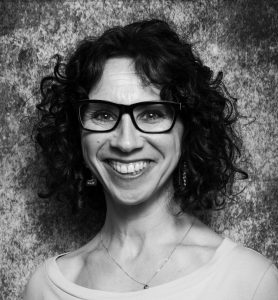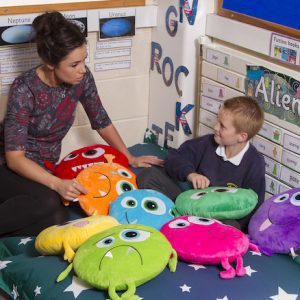Being asked ‘tricky’ questions is something many teachers dread about teaching PSHE. The subject has the potential for questions that will embarrass, surprise, puzzle, wrong-foot or amuse. Some questions you will feel completely unprepared for; for others you simply may not have an answer.
However, the ethos that you create around questioning, and both your implicit and explicit reaction to questions, can make all the difference to a child’s development of the skills, attitudes and level of understanding that they will take beyond the classroom.

This month’s blog looks at useful ways to respond to tricky questions generally, and gives examples of real-life questions from primary-aged children so you can reflect on how you might answer them.
Why enabling questions is key to successful PSHE teaching
As I explained in last month’s blog, creating a safe environment sets expectations for behaviour so that pupils don’t feel judged or shamed, and feel confident in sharing their questions and responses. When pupils ask questions during PSHE lessons be pleased – it means they feel safe, empowered and confident to ask them, and trust you to give them an answer.
However, this doesn’t mean that such questions don’t pose a challenge. You cannot prepare for every question you might be asked – even teachers with years of experience under their belts are asked questions they’ve never heard before – but you can set a precedent for answering them and use particular tactics for the best response.
Here’s some ways to do it:
1. While encouraging questions, also consider your reaction
Your reaction to a question is crucial. Being evasive or dismissive, laughing, or refusing outright to answer a question because it makes you feel embarrassed or uncomfortable could lead to a child formulating their own answer or looking for it somewhere else, potentially from inappropriate or unreliable sources. Your response will also tell the class whether all questions are valued and encouraged, or whether some are more equal than others – there will be others with that question, even if they are keeping quiet.
Don’t imply that any question is ‘stupid’ or irrelevant, or that children ‘should’ know the answer. There will be children who ask inappropriate questions to ‘test you out’, to get a reaction, or to save face in a group, but you should be able to gauge the difference and manage these without shaming. Remember that behind every question there is a need for information, even for those who might also be trying to push the boundaries.

2. Be honest
Be honest and open, even if it’s an unexpected question, or you don’t know the answer. You will gain more respect by saying “I don’t know the answer to that question, but I’ll find it out” than by being dismissive or unclear, being untruthful, or by not responding at all.
Of course, honesty should always be age-appropriate – a response to a similar question will be different in Year 1 than in Year 6 – but you can be honest in your response without going into a level of detail which might upset, confuse or be beyond a child’s understanding. For example, if there is a high profile and upsetting event in the news, children may arrive at school full of questions and theories about what they have seen or heard. To ignore, dismiss or not respond to their questions, or pretend that nothing has happened can be counter-productive, especially if they’re hearing about it anyway from other children around them. An honest response helps children be clear about the facts in a situation, and separate those from speculation, rumour, misinformation or lies.
Inevitably, teachers are often asked personal questions about their own lifestyle, choices and relationships. How (or whether) someone responds to these will vary between individuals – some will feel more comfortable responding than others – but referring to ground rules can be a helpful way to remind children about boundaries. You should never feel obliged to answer personal questions honestly or otherwise.
3. Buy time
Whether it is in PSHE or any other subject area, all teachers should master the skill of buying time.
As one of my colleagues puts it – perfect the art of a straight face. You can deflect a question back to the class: That’s a great question – anyone know the answer? which is also a useful way of finding out about any misconceptions or assessing how much children might already know. If you don’t know the answer, be honest: That’s a great question but I don’t know the answer. I’ll find out and let you know. Alternatively, if you want to think more about your answer to make sure it is appropriate you could say Let me have a think about that question for a bit – I want to make sure I give you the best answer/all the information you need. Just always make sure to remember to give the response you have promised!
It can also help to enable children to ask questions anonymously, by having a question box or post-it wall. You can collect any questions throughout the day or over a week, and respond to them all together in a lesson – this can also be a good way for you to prepare responses without being put on the spot, especially for more challenging questions around sex or relationships, for example. It can also be helpful at the start of a topic as a baseline assessment of children’s understanding – telling children about the topic, then inviting them to write down any questions they might have to begin with, can be a really engaging and useful way in.

4. Be aware
As I said above, behind questioning lies a desire for information, and at times you may wonder why a child is asking a particular question, especially if it appears inappropriate. If a question concerns you, or prompts alarm bells, you might want to find out a bit more about what’s behind it. In these cases, decide whether you think it is better to respond privately rather than in a whole-class situation, and consult safeguarding policies if you think this is necessary.
5. Don’t panic!
Finally, remember that it’s ok to not have all the answers all the time. For all the questions that pupils always ask, there will be new ones that you aren’t prepared for, or weren’t expecting. Children now are growing up in a very different world to the one in which we grew up, and will have a myriad of different and new experiences and expectations.
Q&A
Here’s some examples of questions from primary-aged children. Consider how you might respond – would you buy time, and if so, how? How would you answer directly?
- How old do you have to be to have a baby?
- When someone dies, where do they go?
- Why don’t men have periods?
- Why do terrorists kill people?
- What is sex? What does …. mean? (Questions like this, or about particular parts of the body might be asked using slang words. It’s important to clarify what a child means if they use slang, and use the correct terminology when responding).
- Why do boys have wet dreams?
- Have you ever taken drugs/got drunk/smoked cigarettes? Have you got a girlfriend/boyfriend? (See note on answering personal questions above).
- My granny smokes. Does this mean she’s going to die?
- Why are some people always sad?
Thank you very much to Lucy Marcovitch for sharing this third blog in the six part series for us.
Lucy is a writer and educator with over 25 years experience in education. She began her teaching career in Leeds primary schools, then moved into resource writing and development. She spent 10 years as the National Curriculum advisor for PSHE education, which included participating in two National curriculum reviews, and developing the first national guidance, training and assessment resources for the subject. Her consultancy work includes developing and writing classroom resources and guidance materials, and educator training and guidance for a variety of charities and commercial clients including the BBC, Teach First, Hopscotch Consulting and Discovery Education. She is a part-time lecturer on the Childhood, Youth and Education studies BA at Coventry University.




